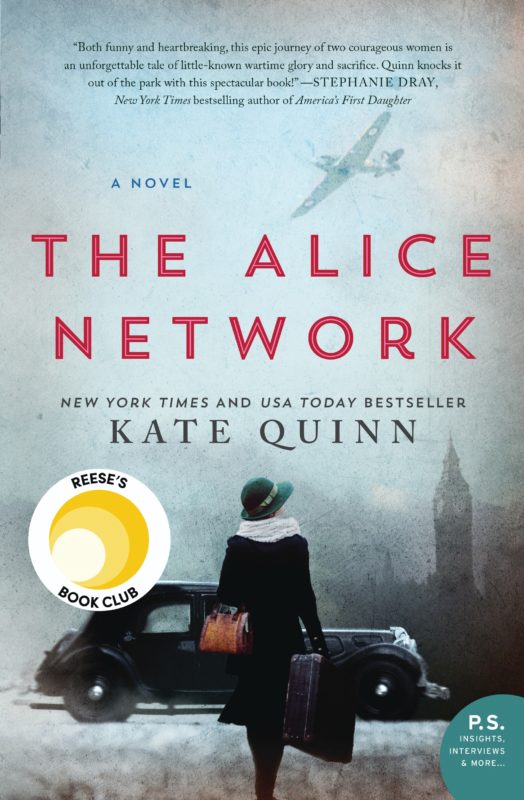Philippa Gregory made it big with The Other Boleyn Girl and followed it with The Virgin’s Lover, The Queen’s Fool, and The Boleyn Inheritance. Now there are approximately 2,500 books about Anne Boleyn, Cate Blanchett garnered an Oscar nomination or two playing Elizabeth I, a major television show called “The Tudors” is racking up viewers, and don’t even get started on the existing Masterpiece Theatre specials, novels, and historical biographies already written in the past century.
I admit to being fascinated by the Tudors myself. I spent a good deal of my childhood pretending to be Elizabeth I sitting on the steps outside the Tower of London, just as I’d seen Glenda Jackson do in Masterpiece Theatre’s “Elizabeth R.” There were other queens–Catherine the Great of Russia, Maria-Therese of Austria–but it was Elizabeth who filled my childhood fantasies. So my question for today is: Why are the Tudors so trendy?
There are other historical figures who rack up a lot of fictional space: Richard III, for example. But his fascination can be explained by the hatchet-job his reputation received at the hands of Shakespeare, which has led to a counter-balancing determination by later novelists and historians to see his better side explored. But the Tudors are different. They were a dynasty of red-haired charmers who happened to rule England during a period of historical and cultural richness, and four hundred years later we are still fascinated by them.
Why?
The Tudors had that compelling combination of charisma, good looks, and turbulent personal lives that makes for such appealing tabloid fodder today. Henry VIII certainly wasn’t the greatest king England ever had; in fact, he squandered an enormous national treasury on personal entertainment. But the man had staggering personal charm–even those who knew better, like his daughters who were both denounced as bastards and their mothers either murdered or hounded to death, forgave his misdeeds. And he was the ideal of the Renaissance man so popular in the era, a handsome prince who excelled at warfare and physical sports yet also wrote poetry, played musical instruments, read widely, and appreciated the arts. So Henry is remembered today, that fat old bastard with VD who went through wives like tissue paper. Elizabeth had every bit of his charm, and the added gift of intelligence and diligence; she is more worthy of the adulation she continues to this day to receive. Her sister Mary was less attractive, but at least she was a religious fanatic and those always give good value fictionally. Their brother Edward died too young to be of much interest, but Lady Jane Grey as a more obscure Tudor came along to spice things up with her nine-day-reign, her tragic death, and her Helena Bonham-Carter movie. Even Mary, Queen of Scots, can be included in the aura of Tudor radiance: she had Tudor blood, after all, and the red hair, tempestuous personal life, and personal charisma that went with it. To the end, Mary’s charm persuaded people to help her against their better judgment, at least until Elizabeth took her down like the stupid, conniving fool she really was.
What I find amusing is that Henry VII, the founder of the Tudor dynasty, had none of the attributes that would make his descendants so famous. He was a dour, tight-fisted king who won his throne by treachery and kept it by tight-lipped suspicion, a man notoriously lacking in generosity, charm, or good looks. He even failed the family mold by having only one wife and being relatively faithful to her. He can be remembered as a good King, one who gave England some sorely needed peace and built up a prosperous and thriving economy. But no one writes books today about him.
In an era before television, celebrities, and tabloid journalism, people looked to royalty for entertainment. Kings who got the job done, like Henry VII, might be appreciated but not remembered. Kings who swung the other way and provided entirely too much entertainment in the form of war, rebellion, and blatant favoritism (Edward II, Richard II, Henry VI) might be remembered but certainly not appreciated. The Tudors, however, managed to keep things interesting without going overboard. Henry VIII’s revolving wives, Elizabeth I’s will-she-or-won’t-she marital status, Mary Queen of Scots’s endless plotting–the Tudors kept their subjects entertained while simultaneously providing peace, stability, and a cultural renaissance. No wonder they’re so celebrated today.
That being said, I do wish writers would give them a rest for a while. How many books about Elizabeth I, Henry VIII and various wives, and Mary, Queen of Scots does the world need? I love Elizabeth I, but I don’t think I could ever write a book about her. They’ve all been written. I think all the Tudor books have been written by now. Perhaps a brilliant writer out there can find an unlit angle for a totally new novel, but I’m skeptical.
Bottom line: The Tudors are great. Let’s appreciate them–and move on.







